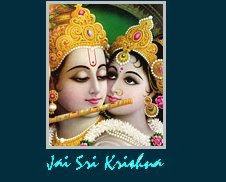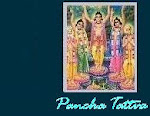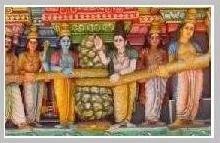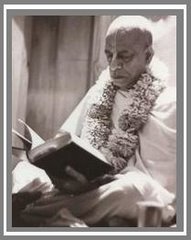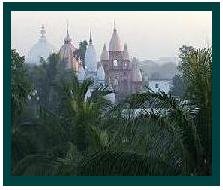
(Maha-Narayan Upanisad 4.12)
Om na karmana na prajaya dhanena tyagenaike amrtatvam anasuh /
parena nakam nihitam guhayam vibhrajate yad yatayo visanti /
vedanta-vijnana suniscatartha sannyasa yogad-yataya-suddha-sattvah /
te brahma-loke tu paranta-kale paramrtat-parimucyanti sarve /
dahram vipapam parame’ sma bhutam yat-pundarikam
pura-madhya sagmstham /
tatrapi dahram gaganam visokas-tasmin yad antas tad upasitavyam /
yo vedadau svarah prokto vedante ca pratistatah /
tasya prakrti-linasya yah para-sa mahesvarah //
Translation
Those sannyasis, having realized the actual conclusion of the Vedas, having given up personal sense enjoyment for engagement in the Lord's service, and being completely free of the influence of the material modes, at the end of their lives become freed from the material world and enter that Vaikuntha realm.
There is a lotus situated within the body, in the middle of the heart, a place free from all suffering. It is the spiritual sky, free from all material contamination and lamentation. There resides the object of our worship.
He who is glorified at the beginning of the Vedas, and is firmly established at the end of the Vedas, who resides beyond the material sphere, who is second to none, He is the Supreme.
